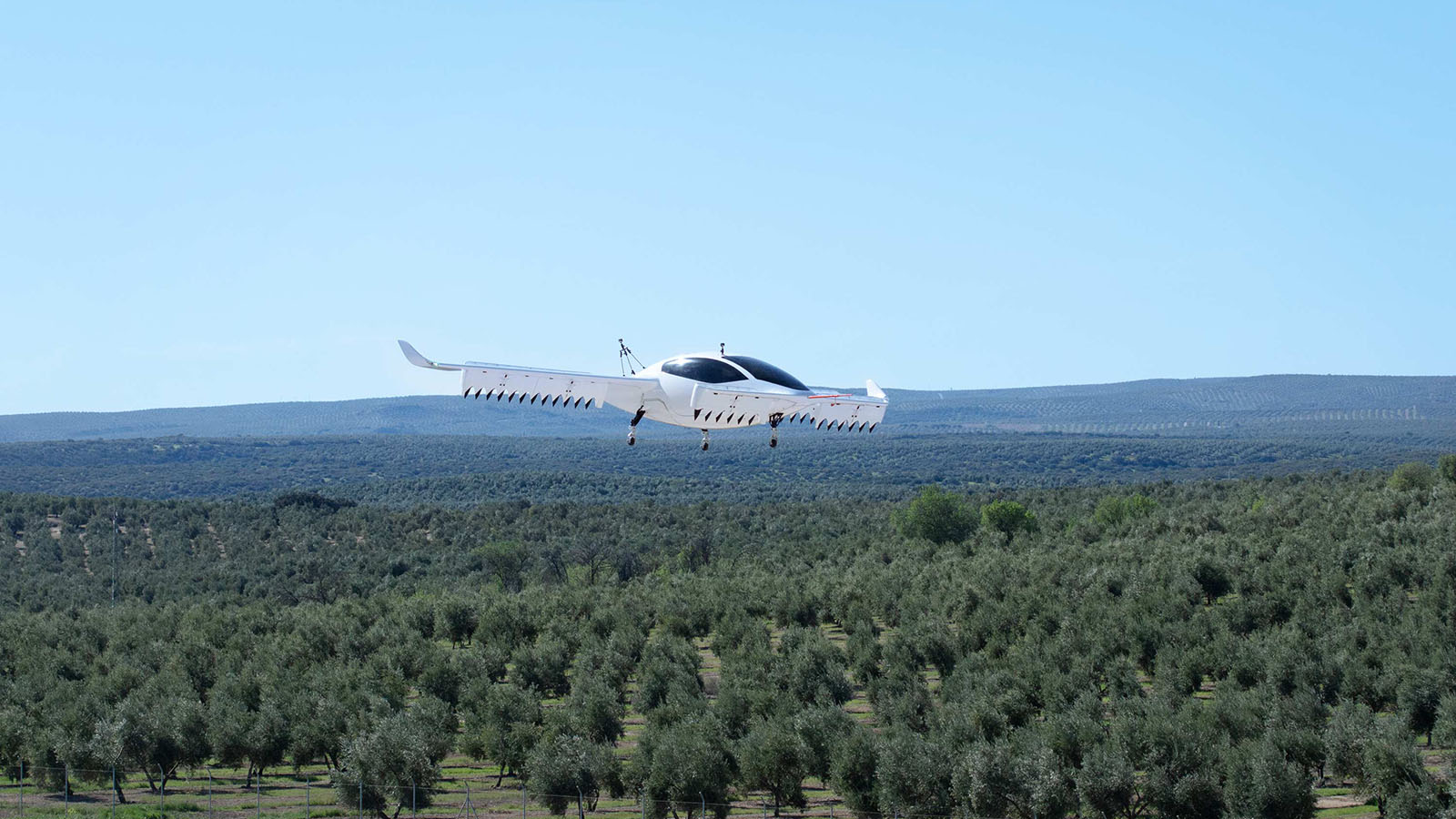Stay Up to Date
Submit your email address to receive the latest industry and Aerospace America news.
Effort underway to increase battery cell production
The founder of Lilium, the Munich-based air taxi developer, described in a livestream presentation last month why he expects the company’s reliance on a new kind of battery cell — one whose anodes are made of silicon instead of the standard graphite — to meet the power demands of the electric Lilium Jets the company plans to sell.
Daniel Wiegand, also chief engineer for innovation and future programs, said during the presentation that he was addressing skeptics who have questioned whether the aircraft’s high power and energy demands can be met by existing battery technology: The answer is no, he said, but he predicted they would be met by the newer silicon anode technology.
In an interview after the livestream, Wiegand told me that the timing of the presentation, which the company said would “Lift the Lid” on the power source for its jet, was important.
He said Lilium needed to explain its battery strategy as the company begins building aircraft that conform to the final production design — starting with six Lilium Jets to be completed next year for flight tests in Spain and Germany. The company is also equipping its double-soccer-field-sized production facility near Munich for construction of the aircraft. On Monday, the European Union Aviation Safety Agency granted Design Organization Approval to the Lilium Jet, which means the company can expand its flight test program with full-scale production prototypes as it seeks type certification.
These six aircraft will have the silicon anode cells. “Over the last three to four years, people have perceived this silicon battery as something that is a risk because it was novel; it had to be tested before you can really trust it,” Wiegand told me. “I felt now Lilium is at an inflection point where this battery turns from risk into competitive advantage for us.”
The Lilium Jet will eventually seat a pilot and six passengers, which is one or two more than most electric air taxis under development. Its 36 ducted fans across a wing and canard place high demand on the battery during vertical takeoff and landing, and the company plans trips up to 250 kilometers, which is the maximum range of most electric aircraft under development today.
The decision to try a new technology traces back to 2021, when Lilium invested in IonBlox, a California battery research firm then called Zenlabs, which was developing the silicon anode technology. IonBlox has licensed the technology to two companies that will manufacture silicon anode cells — CustomCells, based in Germany, and more recently InoBat in Slovakia — under a plan to build the cells and ship them to Lilium for packaging into battery packs.
As of today, Lilium buys “hundreds of cells per week” for the silicon anode batteries from CustomCells, Weigand said, while Inobat has yet to start delivery of such cells. Both CustomCells and Inobat plan to accelerate production and deliveries.
“Hundreds of cells are enough for now because we will only build six aircraft in the next two years for certification,” Wiegand said. “We will use that time to add further automation to make sure we are ready to ramp up production as soon we get our type certificate,” which the company is planning for in 2025.
Each Lilium Jet has 10 battery packs with a total of 2,000 such cells, so increased production from the two suppliers is needed, he said.
Zenlabs said in 2021, before its name change to IonBlox, that the U.S. Department of Energy’s Idaho National Laboratory evaluated the silicon anode and found it can endure more than 1,000 charge cycles with minimal degradation. The lab didn’t immediately respond to my inquiry about their findings about the capabilities of the technology.
Such battery cells can be charged to 60% of the battery’s capacity in five minutes and 80% in 10 minutes, Zenlabs reported in 2021, saying the charging times make it “possible to charge electric vehicles in nearly the same time it takes to fill up a gasoline tank.”
Lilium has been flying two test aircraft in Spain, and is in the process of securing permits to perform additional test flights in Germany, Wiegand said. The batch of six test jets should be ready by the end of 2024, he adds.
Get the latest news about advanced air mobility delivered to your inbox every two weeks.
About paul brinkmann
Paul covers advanced air mobility, space launches and more for our website and the quarterly magazine. Paul joined us in 2022 and is based near Kennedy Space Center in Florida. He previously covered aerospace for United Press International and the Orlando Sentinel.
Related Posts
Stay Up to Date
Submit your email address to receive the latest industry and Aerospace America news.




